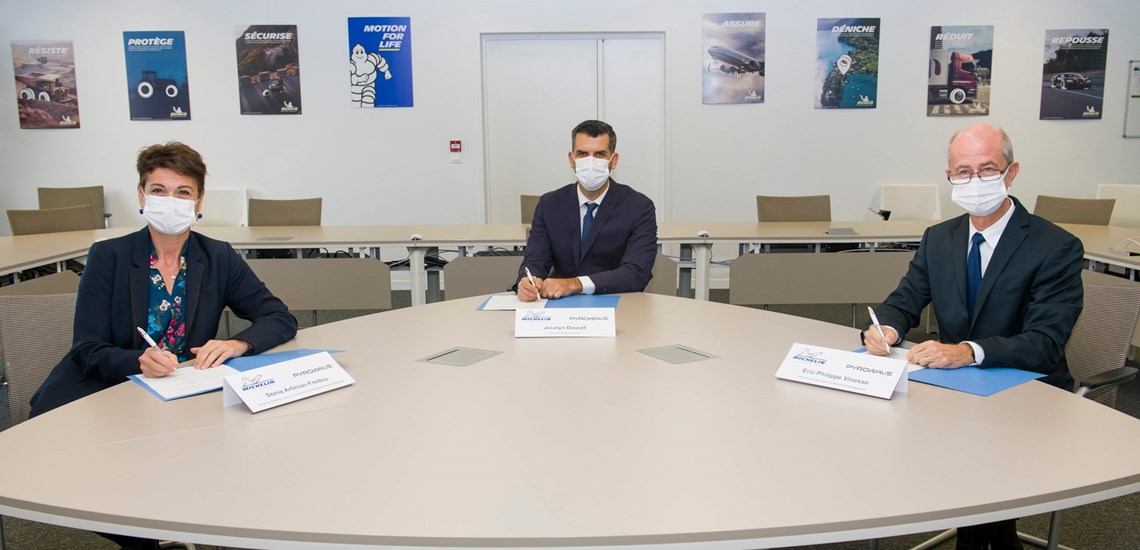After decades of struggling to gain acceptance with tyre manufacturers, recycled materials are increasingly part of the future of tyres.
Michelin and Pyrowave Sign Deal on Plastics Recycling
In its latest deal, Michelin has signed with Montreal based Pyrowave.
The technology, developed Pyrowave, makes it possible to generate recycled styrene from plastics found in packaging, insulation panels and household appliances. The recycled styrene can be used in the production of polystyrene and synthetic rubber for tyres and other consumer products.
Pyrowave’s patented catalytic microwave depolymerisation (CMD) technology electrifies the chemical process using low-carbon footprint microwaves. It microwaves feedstock and carefully breaks internal links, returning them to their component molecules, or “monomers” to recreate a resin identical to the virgin resin used.
Pyrowave is focusing on tough-to-recycle No. 6 plastic or polystyrene. The hard to recycle material is found in packing peanuts, disposable plates and cups, meat trays, egg cartons, and take-out food containers.
The company’s process uses electricity – the energy form currently providing the highest decarbonation potential.
The two companies intend to fast-track the industrialisation of the Pyrowave technology fuelled by a more than $31 million investment for roll-out in international markets.
Michelin’s technical teams will work with their Pyrowave’s counterparts to develop an industrial demonstrator at a Michelin facility outside Paris, funded and operated by the tyre maker, by 2023.
“The purpose is to manufacture tyres made of increasingly sustainable materials and to make these technologies available to innovative recycling channels,” said Sonia Artinian-Fredou, Michelin’s executive vice-president, services and solutions, high tech materials.

















